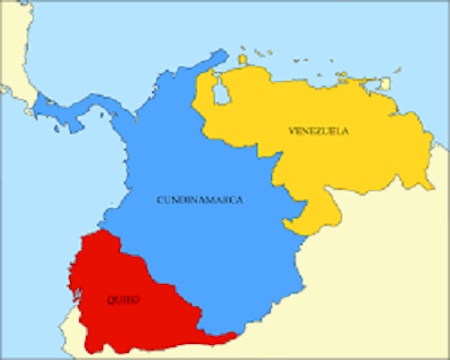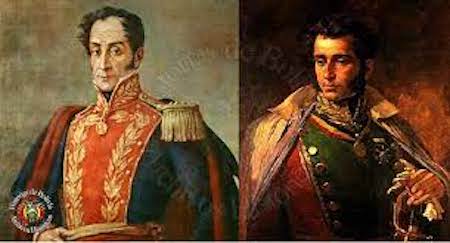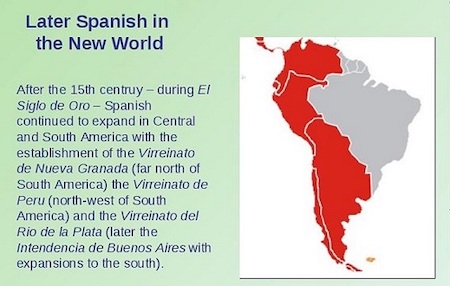The 200th Anniversary of the decisive Battle of Carabobo that finally freed Venezuela from Spanish Colonialism and led to Continental Liberation
 Print This Print This
By Arturo Rosales writes from Caracas – Axis of Logic Exclusive
Axis of Logic exclusive
Tuesday, Jun 22, 2021
Background
Thursday, June 24, will be the 200th anniversary of the Battle of Carabobo in which Simón Bolívar’s patriotic forces, outnumbered by the Royalists, won a resounding victory that effectively changed the course of history in South America. The events of that day terminated the 300 years of colonial dominance by Spain over what was then called the General Captaincy of Venezuela, a province of New Granada, which is modern-day Colombia and Ecuador.
Two years earlier, in 1819, Bolívar marched his army from Venezuelan Guyana (nowadays Bolívar State) through the plains and over the Andes mountains to confront the royalist armies at the Battle Boyacá, defeating them and going on to capture Bogotá three days later, on August 10, entering the city while being acclaimed as the Liberator.
With New Grenada now freed from Spanish rule, Bolivar returned to Angostura (modern-day Bolivar City) to plan the liberation of Venezuela. His master plan was to create the country of La Gran Colombia, uniting New Grenada, Quito, and Venezuela, which existed from 1821–1830 until its dissolution into Colombia, Ecuador, and Venezuela as we know the map today.
However, the victory at Carabobo did more than facilitate Bolívar’s dream of uniting New Grenada, Quito and Venezuela – it also acted as a catalyst for the liberation of all Spanish colonial territories in South America.
 |
| Map of La Gran Columbia |
Quito, or Ecuador as we now know it, was liberated at the Battle of Pichincha – on the lower slopes of the volcano of the same name, on May 24, 1822.
The final battle took place on the high mountain plateau of Ayacucho, in Peru, on December 9, 1824 and finally ended Spanish colonial rule in South America after three centuries.
In summary, the patriotic armies of Bolívar and his main general, The Gran Marischal de Ayacucho, Antonio José de Sucre, liberated five countries from Spanish colonial rule - Venezuela, Colombia, Ecuador, Peru and Bolivia, which was formerly called Alto Peru.
 |
| Bolívar and Sucre |
But the strategic and military key to the defeat of the Spanish Empire in South America was the decisive Battle of Carabobo which allowed Bolívar’s armies to pass over frontiers to liberate the remaining Spanish controlled territories in the continent. A liberated Venezuela prevented any regrouping of royalist forces to retake major cities such as Valencia or even Caracas.
One analysis is that the Battle of Carabobo unleashed historical forces which led to the expulsion of the Spanish from their 300-year domination of the western part of South America. This was achieved through military strategy and the common people enlisting in Bolívar’s Army of Liberation and marching south, thousands of miles, to fulfill their historical mission.
Now, 200 years later, we can only wonder at the determination and desire for freedom and independence from Spanish domination of millions of people. Could it be that recent events sparked by the pandemic - a biological “deus ex machina” - are also propelling a repeat of historical forces to foment a second liberation of countries such as Ecuador, Colombia, Peru, and Chile from the neoliberal exploitation fostered by US neocolonial policies in what it has always regarded as its “Back Yard”?
 |
| Maximum extent of Spanish empire |
Historical impact of Bolívar
As the Liberator of five countries in South America, Bolívar had a determinant impact on historical events that reshaped the continent and led to the emergence of new nation states leaving behind the Spanish Vice Royalties of Peru and New Grenada.
In his 1941 poem, Canto para Bolívar, Chilean poet Pablo Neruda portrays the name and achievements of Bolívar as being passed down, generation to generation so as to inspire people and nations to fight for their independence and freedom from despotism – just as Bolívar did during more than 15 years of military campaigns.
“Bolivar reawakens every 100 years, when the people awakens.”, notes Neruda as the masses take to the streets to defend their rights.
Even today, a popular chant in the streets is……..
Alerta, altera, altera que camina
La espada de Bolívar por América Latina
… as the Bolivarian Revolution began to unfold and establish itself in Venezuela some 24 years ago under the leadership of the late President Chávez.
Countries in Turmoil
Look at events in neoliberal regimes such as Chile, where students have been on the street for at least four years demanding free education and the ditching of privatizations in terms of health care as well. The oppressed Mapuche Indians are demanding their rights as the original people of that region. Then, with the pandemic revealing the shortcomings of the privatized system in that country, the right-wing President Piñero, finally has had to agree to a Constituent Assembly and referendum to allow the people to have a voice and not just run the country for the well-heeled and oligarch classes. It should be noted that the spark that lit the bonfire in Chile was a fare increase on the Santiago metro system.
In Peru, leftist schoolteacher Pablo Castillo won the popular vote against Keiko Fujimori by a razor thin margin but the right wing that has always controlled Peru since 1980, when Alvarado was president, are desperate to keep Castillo at bay. The ruling classes are willing to risk political destabilization, a coup or even a civil war to protect their corrupt lifestyles.
In Colombia, people have been in the street since April 28, demanding the derogation of a new tax law that would have hit the 43% of poor in the country and this was transformed into a general strike with leaders demanding reforms to restore some quality of life to the masses. Students want free higher education with no cost, but last week the right wing dominated Colombian Congress kicked out the zero-matriculation proposal. Police violence, killings, disappeared, rapes, and sexual violence carried out by the security forces are all fanning the flames of revolution In Colombia.
In Ecuador, Lasso won the presidency as a right wing, neoliberal banker but there is something odd even though no-one has screamed “fraud”. Lasso’s party has only 9% of the 137 seats in Ecuador’s congress. We have heard of tactical voting, but this is far and away one of the most unbelievable results in Ecuador’s democratic history.
In Bolivia, after the November 2019 Añez coup d’état, fresh elections restored Evo Morales’ Movement to Socialism (MAS) back to power with 55% of the vote. This has led to coup leaders facing justice after the killings that took place with neither the OAS nor the High Commissioner for Human Rights of the UN, Michelle Bachelet, condemning the violence.
The turmoil in the aforementioned countries is in sharp contrast to the peaceful situation in Venezuela. But why are all these countries facing unrest at the same time? Is it because of the common thread neoliberal policies imposed by successive governments that ground down the populations who are now rising up? Is it that history from over two hundred years ago is repeating itself, inspired by the reawakening of Bolivarianism and what the Liberator represented in the collective memory of the people? Is it a coincidental geo-historical and geo-political phenomenon driven by what Carl Jung called synchronicity?
Since there is not one single answer to such complex questions, suffice it to say that the spirit of Bolívar and the 200th anniversary of the catalytical Battle of Carabobo are driving a similar paradigm as during the South American independence wars.
Role of Venezuela
As it was two centuries ago, Venezuela today is the epicenter of a revolutionary movement that wants to establish a different political paradigm for Latin America; a paradigm with an autochthonous ideology with historical and cultural elements, not only repeating the past, but also adding new elements and experiences from the global context of our era. Chávez called this new paradigm Socialism of the 21st Century.
The continent wide revolution Chavez sought twenty years ago found its path via the Atlantic–Caracas-Brasilia-Montevideo-Buenos Aires. Now, in 2021, the former historical route via the Pacific is reemerging – Caracas-Bogotá-Quito-Lima-Santiago.
Both historical and tectonic shifts take time to build up and “explode”. Yet there is clear evidence that changes are welling up as the anniversary of the Battle of Carabobo beckons, The peoples of the world’s most unequal continent, South America, seek to establish a better and brighter future for their offspring and coming generations.
Celebrating the Battle of Carabobo in Venezuela
Various monuments have been constructed ready for the anniversary and ten tourist buses are waiting to take people on a guided tour of the monuments and the battlefield itself.
Caracas is being smartened up in anticipation of the victory parade led by Bolívar himself that will reenact his triumphant entrance into Caracas on June 29 after this key victory for Venezuela and South America.
There is still a long way to go to give many poor in South America decent lives and defeat the poverty imposed by the rich and imperialist classes who have benefited from the neoliberalism of the 1990’s.
Just recall that the explosion in Venezuela happened on February 27, 1989 – the Caracazo - and Chávez came to power ten years later. Perseverance, patience, unity, struggle, battle, and victory by the peoples of this continent are the key and just as plate tectonics move slowly, so do the forces that drive revolutions to emerge, since, as Fidel once said: “History tells us that a defeated revolution must pay the victors in blood.”
The conclusion to this process is not yet ready to be written.
© Copyright 2021 by AxisofLogic.com
This material is available for republication as long as reprints include verbatim copy of the article in its entirety, respecting its integrity. Reprints must cite the author and Axis of Logic as the original source including a "live link" to the article. Thank you!
|
 Print This Print This

|

